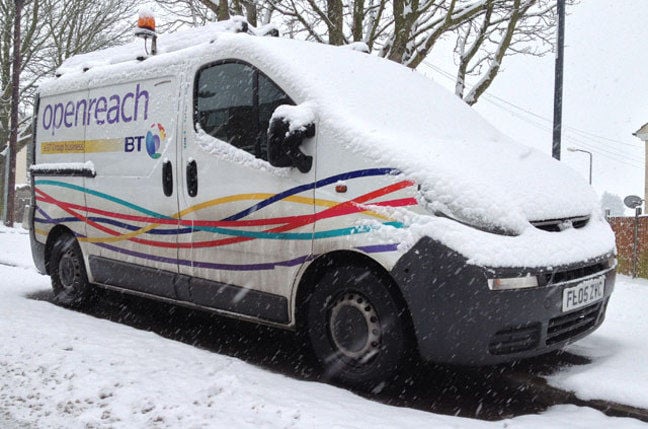BT Dips Toe Into Liquid Cooling In Quest For A Chill Network

BT is to trial liquid cooling solutions in a bid to improve energy consumption and efficiency across its networks and IT infrastructure.
The UK's former state-owned telecoms operator said it is trying out several liquid cooling technologies in line with commitments to becoming a net zero business by 2031. The chance that it could bring a 40-50 percent reduction in power needed to cool systems might also make cost savings a factor.
BT announced it will test out liquid cooling for network switches using technology supplied by Iceotope and QFX Series switches from Juniper Networks, which it said are widely used in existing networks.
However, the company is also exploring various alternative cooling techniques in addition to the trials involving Iceotope and Juniper.
These will include full immersion of networking servers in an immersion tank with technology from Immersion4; liquid-cooled cold plate technology for networking equipment supplied by Nexalus; and a system from Airsys where coolant fluid is sprayed directly on the heat emitting components.
The telco indicated it expects the trials may well extend over a couple of years.
"We need to conduct long-term testing to learn how to operate the systems in life and the maximum potential energy savings. We anticipate that this kind of testing will take at least 1-2 years," a BT spokesperson told us.
BT also said it expects that multiple different cooling solutions might eventually be deployed across its network, depending on the specific location and operational requirements involved.
- Microsoft's AI investments skyrocketed in 2022 – and so did its water consumption
- Demand for datacenter capacity in Europe sees busiest Q2 ever
- Our AI habit is already changing the way we build datacenters
- Digital Realty: We hear you like your racks dense, how does 70kW sound?
For example, Iceotope recently developed a system called KUL RAN specifically targeted at telecoms edge infrastructure, with 5G radio access network (RAN) deployments in mind.
The aim of the trials will be to establish which of the cooling technologies are optimal for specific scenarios, and the potential energy savings on offer, BT said.
However, the company expects the benefits to include a 40-50 percent reduction in the power needed to cool systems, compared with existing air cooling methods, plus the potential to pack in equipment at higher density and save on real estate.
"As the UK's largest provider of fixed-line broadband and mobile services in the UK, it isn't a surprise that over 90 percent of our overall energy consumption comes from our networks," BT Group Networks Research Director Maria Cuevas said in a statement.
It is critical to address energy efficiency in the current climate of advancing technology and growing data demands, she added.
Other advantages of liquid cooling are that it allows equipment to be more easily deployed in environmentally challenging environments such as areas with contaminants like dust.
Interest in liquid cooling has continued to grow as more powerful CPUs and GPUs used in servers draw ever more power.
The recent craze for AI isn't helping here as some new servers are being kitted out with up to eight GPUs, which means they could end up drawing up to 7-10kW of energy per node.
This has led to some predictions that by 2025, all tier-one server vendors will have to start offering some form of liquid cooling solution. ®
From Chip War To Cloud War: The Next Frontier In Global Tech Competition
The global chip war, characterized by intense competition among nations and corporations for supremacy in semiconductor ... Read more
The High Stakes Of Tech Regulation: Security Risks And Market Dynamics
The influence of tech giants in the global economy continues to grow, raising crucial questions about how to balance sec... Read more
The Tyranny Of Instagram Interiors: Why It's Time To Break Free From Algorithm-Driven Aesthetics
Instagram has become a dominant force in shaping interior design trends, offering a seemingly endless stream of inspirat... Read more
The Data Crunch In AI: Strategies For Sustainability
Exploring solutions to the imminent exhaustion of internet data for AI training.As the artificial intelligence (AI) indu... Read more
Google Abandons Four-Year Effort To Remove Cookies From Chrome Browser
After four years of dedicated effort, Google has decided to abandon its plan to remove third-party cookies from its Chro... Read more
LinkedIn Embraces AI And Gamification To Drive User Engagement And Revenue
In an effort to tackle slowing revenue growth and enhance user engagement, LinkedIn is turning to artificial intelligenc... Read more

